How Baku Undermines the Credibility of Russia's Mediation Mission 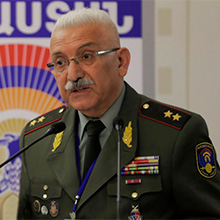 By Lieutenant General (R) Hayk Kotanjian, D.Sc, Full Professor (Strategic Security Studies) By Lieutenant General (R) Hayk Kotanjian, D.Sc, Full Professor (Strategic Security Studies)
Dear Colleagues, I have the honour to draw your attention to the deliberate steps taken by the Baku authorities to undermine the international community's confidence in Russia's mediation mission in the peaceful settlement of the Armenian-Azerbaijani relations and in the South Caucasus region. Another irrefutable evidence of this, among many facts, is the provocation of the Azerbaijani authorities with the violation of the Republic of Armenia’s state border regime, which defiantly followed right after the visit of Russian Foreign Minister Sergey Lavrov to Azerbaijan on May 10-11, 2021 and his departure from Baku. READ MORE
The EU Will Not Act as a Counterweight to Russia in Either Armenia or NKR  By Benyamin Poghosyan, PhD, Chairman, Center for Political and Economic Strategic Studies By Benyamin Poghosyan, PhD, Chairman, Center for Political and Economic Strategic Studies
The EU is neither willing nor capable of countering Russia or Turkey in Armenia and Azerbaijan and will not make efforts to decrease Russian influence in Armenia and the unrecognised Nagorno Karabakh Republic.
EU-Armenia relations entered a new phase in 2009 when the EU launched its Eastern Partnership Initiative. Armenia successfully negotiated an Association Agreement with the EU and was going to sign it in autumn 2013. The growing tensions between Russia and the West forced Armenia to cancel the signature, not to ruin relations with its strategic ally. Armenia and the EU started a new round of negotiations in late 2014, culminating with the signature of the Comprehensive and Enhanced Partnership Agreement (CEPA) in November 2017. READ MORE
Russian Goals in the Armenian Snap Parliamentary Elections  By Benyamin Poghosyan, PhD, Chairman, Center for Political and Economic Strategic Studies By Benyamin Poghosyan, PhD, Chairman, Center for Political and Economic Strategic Studies
Armenia is actively preparing for the 20 June 2021 snap parliamentary elections. Political parties are making their final calculations regarding the format of their participation. The main battle will probably occur between the incumbent prime minister, Nikol Pashinyan, and the second president of Armenia, Robert Kocharyan. The latter has already confirmed that he will lead an alliance of two or three parties. The Armenian Revolutionary Federation, the “Motherland” party, established by the former director of the National Security Service, Artur Vanetsyan, and the new “Rebirth Armenia” party established by the former governor of the Syunik region, Vahe Hakobyan, which unites several mayors from the Syunik, may create an electoral bloc under the leadership of Robert Kocharyan. READ MORE
A Vote Largely Motivated by Hate in Armenia’s June ‘21 Elections  By Benyamin Poghosyan, PhD, Chairman, Center for Political and Economic Strategic Studies By Benyamin Poghosyan, PhD, Chairman, Center for Political and Economic Strategic Studies
Former president Robert Kocharyan has emerged as the strongest challenger to prime minister Nikol Pashinyan in Armenian’s forthcoming parliamentary elections. However, most voters are simply motivated by their hate of one or the other.
Armenia is looking forward to the snap parliamentary elections scheduled for June 20, 2021. According to the preliminary agreement between the ruling "My step" faction and the two parliamentary opposition parties, prime minister Nikol Pashinyan will resign at the end of April, beginning of May; Parliament will not elect a new prime minister twice; and will thereafter be automatically dissolved as provided for by the Armenian constitution. READ MORE
Is Armenia’s Democracy on Borrowed Time?  By Anna Ohanyan, PhD, non-resident senior scholar in the Russia and Eurasia Program of Carnegie By Anna Ohanyan, PhD, non-resident senior scholar in the Russia and Eurasia Program of Carnegie
Reeling from a military defeat in a war with Turkey-backed Azerbaijan, can Armenia’s hard-won democracy withstand domestic political turmoil?
The recent agreement to cease hostilities in Nagorno-Karabakh has created a new status quo in the South Caucasus. Azerbaijan has recovered territories it lost in the 1990s when the conflict over the enclave first erupted, in the shadow of the Soviet collapse. A new modus vivendi between Russia and Turkey is shaping regional geopolitics. Once shaky authoritarian rule in Azerbaijan is now more deeply entrenched. It can also count on the support of Turkey, another increasingly authoritarian player in the neighbourhood. This stronger and deeper authoritarian presence in the region will place significant stress on nascent democracies in Georgia and Armenia for years to come. READ MORE
Perspectives of the US-China relations: Implications for Armenia  By Benyamin Poghosyan, PhD, Chairman, Center for Political and Economic Strategic Studies By Benyamin Poghosyan, PhD, Chairman, Center for Political and Economic Strategic Studies
The four years of President Trump’s rule will most probably remain in the history of the United States as years of unprecedented turmoil. It started from Presidential executive orders to ban visas for several countries, continued with the tumultuous Russian investigation and impeachment process, almost permanent skirmishes with the key US allies, and ended up with an attack on the Capitol, suspension of the incumbent US President’s Twitter, Facebook and Instagram accounts, and the prospects of the second impeachment in the last days of the current administration. These extraordinary developments may force many to conclude that President Biden will make significant policy shifts in all major domestic and external issues. READ MORE
Economic Consequences of the Second Karabakh War for Armenia  By Benyamin Poghosyan, PhD, Chairman, Center for Political and Economic Strategic Studies By Benyamin Poghosyan, PhD, Chairman, Center for Political and Economic Strategic Studies
The second Karabakh war ended with Armenia's capitulation. The unrecognized Nagorno Karabakh Republic lost approximately 75 percent of its territories, including parts of the former Nagorno Karabakh Autonomous Region within its 1988 borders. However, despite the clear defeat of Armenia, the conflict has not been solved. Azerbaijan was not able to invade the whole territory of Nagorno Karabakh and currently, some 3000 square km of the territory is being controlled by Russian peacekeepers effectively creating a de facto Russian protectorate. READ MORE
- December 22, 2020 20:32PM
Why Armenians are Disappointed with NATO and the EU  By Benyamin Poghosyan, PhD, Chairman, Center for Political and Economic Strategic Studies By Benyamin Poghosyan, PhD, Chairman, Center for Political and Economic Strategic Studies
Despite being firmly anchored in the Russian sphere of influence, Armenia has been quite successful in developing partner relations with the EU and NATO. In the early 1990s, Armenia joined the NATO Partnership for Peace program, and since 2005 bilateral relations have been developing within Individual Partnership Actions Plans. NATO played a key role in developing Armenia's peacekeeping potential and supported defence reforms, including defence education. Armenian peacekeepers participated in NATO-led operations in Iraq, Kosovo, and Afghanistan; Armenian troops took part in several NATO-led drills; and each year a "NATO Week" was held in Yerevan. READ MORE
- December 16, 2020 06:00AM
The True Nature of Sino-Russian Relations 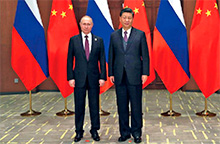 By Eugene Kogan, Tbilisi-based defence and security expert By Eugene Kogan, Tbilisi-based defence and security expert
While Russia is certainly viewed by Beijing as a reliable economic and trade partner with its oil, gas and arms exports to China, the Chinese do certainly not overemphasise this relationship. Instead, China sees Russia as a waning power with its vast territories, supported by armed forces and nuclear weapons, while at the same time prone to endemic corruption and unable to pursue meaningful economic, political and social reforms. READ MORE
- November 26, 2020 08:51AM
After the Elections, Georgia Needs to Walk Carefully on a Regional Tight Rope  By Benyamin Poghosyan, PhD, Chairman, Center for Political and Economic Strategic Studies By Benyamin Poghosyan, PhD, Chairman, Center for Political and Economic Strategic Studies
On October 31, 2020, Parliamentary elections took place in Georgia. Since 2012 Georgian politics is often perceived as a two-men show - billionaire Bidzina Ivanishvili and former President Mikhail Saakashvili. In 2012, Mr. Ivanishvili made a surprisingly successful bid to win Parliamentary elections and ousted President Saakashvili's United National Movement (UNM) party from power. Saakashvili left Georgia in 2013 after the end of his second Presidential term and entered Ukrainian politics becoming the governor of the Odesa region. […] Meanwhile, several criminal investigations were opened against him in Georgia, and a court sentenced him in absentia to several years of imprisonment. Mr. Ivanishvili left the Prime Minister's position in late 2013, but continued to de facto govern Georgia through the ruling Georgian Dream (GD) party. READ MORE
- November 26, 2020 08:43AM
China, Russia and the EU: Forging a Cooperative Relationship 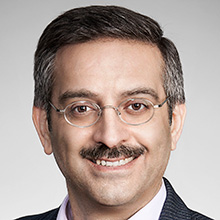 By Elkhan Nuriyev, PhD, Eastern Europe-Global Area (EEGA) fellow at Leipzig University By Elkhan Nuriyev, PhD, Eastern Europe-Global Area (EEGA) fellow at Leipzig University
For Russia, China’s Belt and Road Initiative is less of a threat than an opportunity. Moscow is receptive to the BRI’s ability to help create a multipolar world as it bolsters China’s global stance to counterbalance American hegemony. The Kremlin also views the BRI as a means to attract Chinese investment and foster renewed Russian influence over the European Union’s eastern zone. One of the important buckles of the Silk Road Economic Belt – the overland component of China’s ambitious Belt and Road Initiative (BRI) – is the Eastern Partnership (EaP) region, which represents an essential link between Asia and Europe. Developing this stage means enhancing commercial relations with six partner countries and an infusion of investment funds in several emerging-market economies. READ MORE
Iran–Turkey Rivalry in the Middle East: The Case of Lebanon  By Benyamin Poghosyan, PhD, Chairman, Center for Political and Economic Strategic Studies By Benyamin Poghosyan, PhD, Chairman, Center for Political and Economic Strategic Studies
Iran and Turkey have a long history of rivalry in the Middle East. As two key regional powers, they were vying for influence and seeking to expand their spheres of influence. After WWII both Iran and Turkey had an anti-Soviet attitude and participated in the Central Treaty Organization with the key goal to contain the Soviet Union. The Cold War has halted bilateral competition, while the 1979 Islamic Revolution in Iran has significantly changed the regional balance of power. READ MORE
- September 23, 2020 08:48AM
Covid-19 Is an Important Test for Azerbaijani Unity 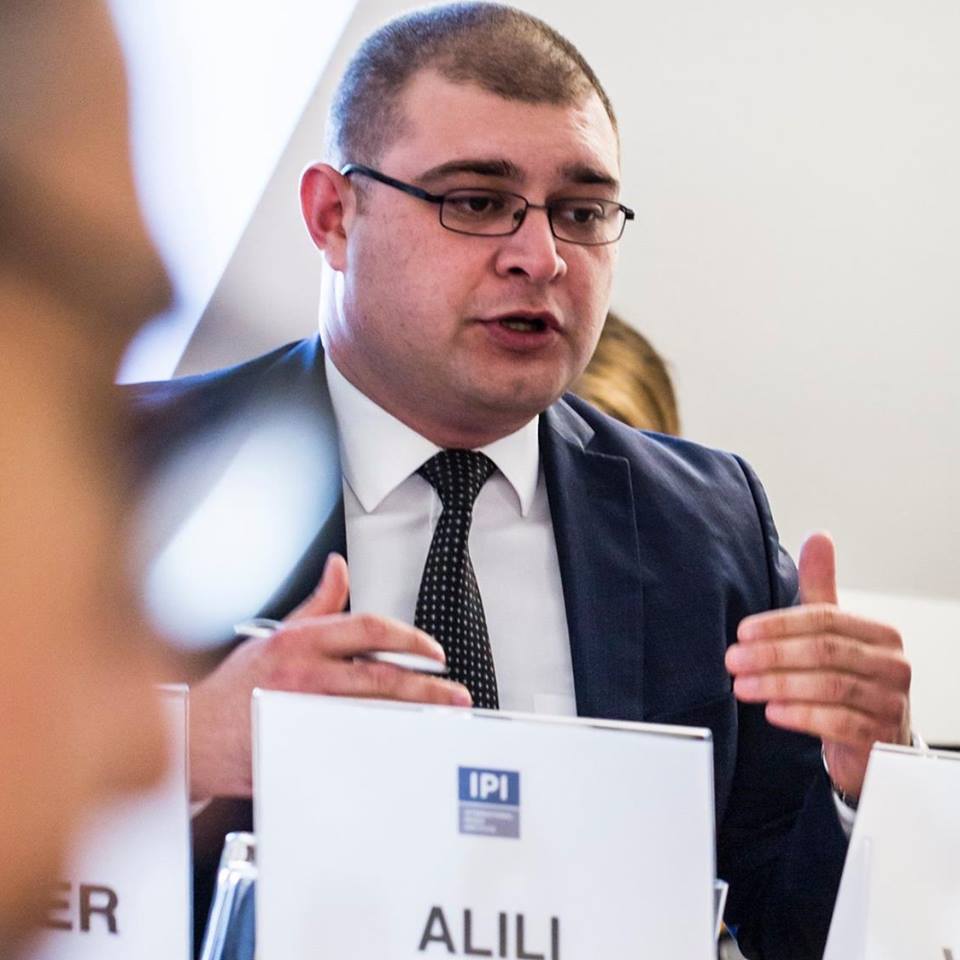 By Ahmad Alili, Head of Research, Caucasus Policy Analysis Center, Baku By Ahmad Alili, Head of Research, Caucasus Policy Analysis Center, Baku
The COVID-19 pandemic has created interesting qualitative and quantitative changes at the top of Azerbaijan's public agenda. Following the snap parliamentary elections in February, the newly elected Parliament, which includes a number of new faces, is tasked to address the challenges the country is facing. In a speech at the opening of the Parliament, President Aliyev sent clear messages to the public servants, political parties and youth. READ MORE
- September 12, 2020 10:32AM
China and Iran Eye Twenty Five Years Strategic Deal  By Benyamin Poghosyan, PhD, Chairman, Center for Political and Economic Strategic Studies By Benyamin Poghosyan, PhD, Chairman, Center for Political and Economic Strategic Studies
A proposed China-Iran 25 year strategic agreement may change the power balance in the wider Middle East. It may also increase Chinese interests in Armenia.
In January 2016, Chinese President Xi Jinping became the first world leader to visit Tehran following the lifting of international sanctions alongside the 2015 Iran nuclear deal. The visit resulted in the signing of 17 agreements on issues ranging from energy to boosting bilateral trade to $600bn. Now, discussions are underway regarding the possibility of a new China-Iran 25-year strategic partnership deal - an idea floated by President Xi, which has apparently received a warm reception amongst the Iranian leadership. READ MORE
What implications for Eastern Partnership countries of a Biden Administration?  By Benyamin Poghosyan, PhD, Chairman, Center for Political and Economic Strategic Studies By Benyamin Poghosyan, PhD, Chairman, Center for Political and Economic Strategic Studies
The November 2020 Presidential elections will probably be the most polarized one in recent American history. The society is divided almost on every critical issue facing America. The foreign policy was never been a decisive factor in the US elections. Americans mainly vote based on the economic situation. However, as the US, despite its relative decline, still remains the sole military superpower and has capacities to seriously impact the geopolitical developments all over the world, almost all countries are looking forward to the election results, simultaneously seeking to understand the key features of the US next administration foreign policy agenda. READ MORE
Covid19 Outbreak - A Test to Global Governance 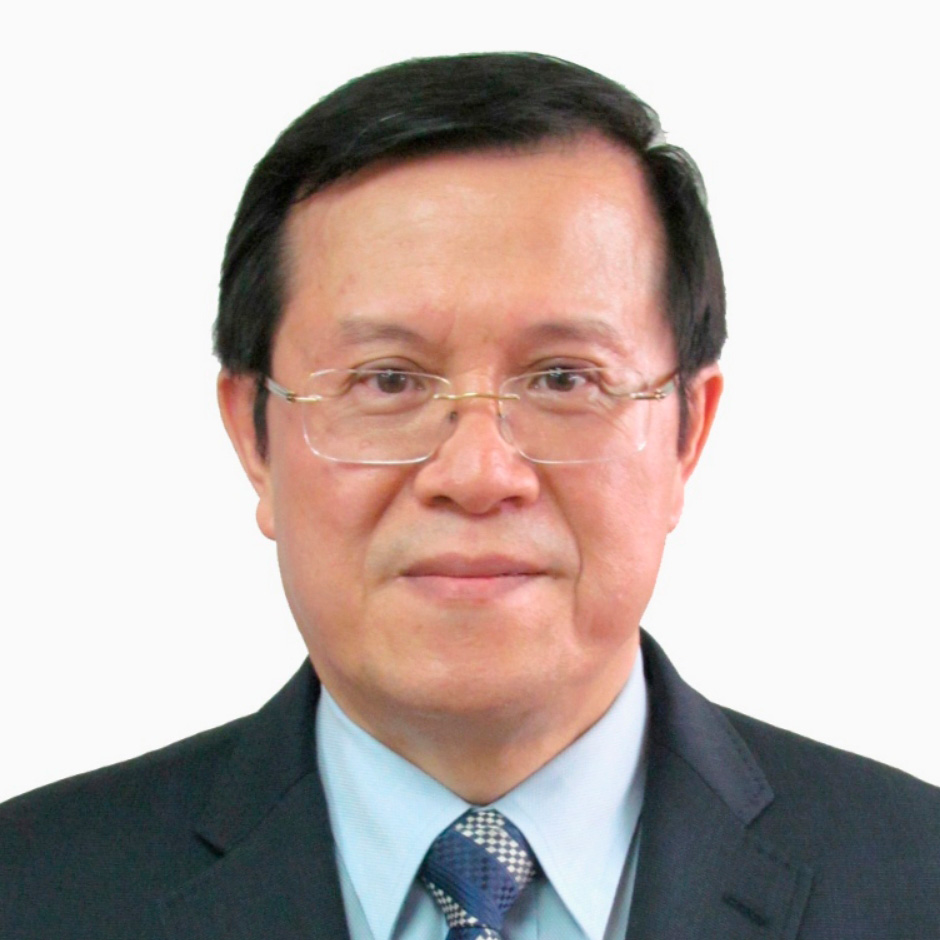 By Ong Tee Keat, Chairman, Center for New Inclusive Asia, Kuala Lumpur By Ong Tee Keat, Chairman, Center for New Inclusive Asia, Kuala Lumpur
On March 11th , 2020, Robert Redfield, the director of US Center for Disease Control & Prevention (CDC), dropped a proverbial bombshell when he testified to the US Congress admitting that numerous Corona virus deaths might have been miscategorized as flu. This belated admission of misdiagnosis has further lent credence to the earlier speculation that many pulmonary fibrosis cases which resulted in deaths due to patients' inability to breathe might in fact have been caused by the Corona virus. These cases, where symptoms might have been masked by attributions to e-cigarette or vaping, happened well before the virus outbreak in Wuhan, China. READ MORE.
President Donald Trump’s Possible Second Term: Implications for Eastern Europe  By Benyamin Poghosyan, PhD, Chairman, Center for Political and Economic Strategic Studies By Benyamin Poghosyan, PhD, Chairman, Center for Political and Economic Strategic Studies
In November 2020 Americans will again go to the polls to elect the President of the United States. Upcoming elections could be one of the most polarized political events in decades. The American society is deeply divided between pro and anti-Trump camps. The economic crisis triggered by the COVID-19 and rising social and racial tensions will contribute to the fierce election campaign. Many Americans make their choice based on the economic situation at home are not interested in foreign policy. READ MORE
Coronavirus Presents Armenia with Difficult Challenges  By Benyamin Poghosyan, PhD, Chairman, Center for Political and Economic Strategic Studies By Benyamin Poghosyan, PhD, Chairman, Center for Political and Economic Strategic Studies
The COVID-19 pandemic has confronted governments with two massive simultaneous challenges. They have to contain the virus through large scale social distancing to prevent the uncontrolled growth of infected people and collapse of the health system. Meanwhile, each day that passes with economic activity virtually suspended puts an enormous pressure on businesses, and contributes to a possible social and financial collapse. Armenia faces the same dilemma. READ MORE
Azerbaijan in 2020: Recent Developments and Future Foreign Policy Challenges  By Ahmad Alili, Head of Research, Caucasus Policy Analysis Center, Baku
By Ahmad Alili, Head of Research, Caucasus Policy Analysis Center, Baku
At the dawn of the unipolar international system – following the collapse of the Communist system in Eastern Europe and the South Caucasus – “the end of history” was announced. It was expected that the benevolent hegemony of the United States would last for many decades to come – liberal values and democracy would be spread to each corner of the world. The events of recent years and the chaos in the international order shows that the world is transforming from a unipolar world into a multipolar one. This transformation process has its reverberations in regions such as the South Caucasus. READ MORE
Precarious Situation in Iran Doesn’t Mean State-collapse Soon  By Benyamin Poghosyan, PhD, Chairman, Center for Political and Economic Strategic Studies By Benyamin Poghosyan, PhD, Chairman, Center for Political and Economic Strategic Studies
On February 21, 2020 Iranians went to polling stations to elect their new parliament. Despite all the statements of Iran's leadership, including of the Supreme Leader Khamenei, of the importance of a high turnout, only 42 percent of registered voters casted their ballots, the lowest figure since the 1979 Islamic Revolution. Many inside and outside Iran saw this low turnout as a tacit protest of a large part of the electorate against the Guardian Council's decision to cancel the registration of many moderate and reformist candidates. Supreme Leader blamed the low turnout on the "negative propaganda" about the new coronavirus by Iran's enemies. READ MORE
Armenia and the US: Time for New Thinking  By Eduard Abrahamyan, Senior Fellow with the London-based Institute for Statecraft By Eduard Abrahamyan, Senior Fellow with the London-based Institute for Statecraft
Armenia’s 2018 Velvet Revolution raised hopes for a reinvigoration of the country’s decades-long partnership with the U.S. However, this relationship remains stagnant, despite the visit of a U.S. delegation led by National Security Advisor John Bolton in October 2018 and the subsequent visit of Deputy Assistant Secretary George Kent to Yerevan in May 2019, resulting in the formal elevation of Armenia’s relations with the U.S. to the level of “strategic dialogue.” Moreover, Yerevan’s decision to dispatch a military-humanitarian mission to Syria remains an irritant in its interaction with Washington.
READ MORE
Will Putin Allow Belarus to Play a Balancing Game?  By Benyamin Poghosyan, PhD, Chairman, Center for Political and Economic Strategic Studies By Benyamin Poghosyan, PhD, Chairman, Center for Political and Economic Strategic Studies
With Pompeo due in Minsk this week, and the Belarus presidential elections on the horizon, Moscow and Minsk have some difficult decisions to take.
Relations between Russia and Belarus are one of the hotly debated issues among pundits dealing with the politics of the post-Soviet space. Till recently bilateral relations were focused on economic cooperation, and more particularly, on the price of Russian gas and oil delivered to Belarus. In 2019 the accent shifted towards the practical implementation of the 1999 Union State treaty. The looming power transition in Russia in 2024, when President Putin fourth Presidential term expires, has inflamed the debate on the possibility of President Putin becoming the President of the Union state after 2024. This scenario was discussed as a possible way for President Putin to extend his power beyond 2024. READ MORE
Why Strong Armenia is Beneficial for both Russia and the US  By Benyamin Poghosyan, PhD, Executive Director, Political Science Association of Armenia By Benyamin Poghosyan, PhD, Executive Director, Political Science Association of Armenia
The South Caucasus always has quite complicated geopolitics. Russia, the US, the EU, Iran, Turkey, and China all have interests here. Armenia, Azerbaijan, and Georgia have different domestic political structures and cultures. Besides that, their national security threat perception and foreign policy goals do not coincide with each other. The protracted conflicts in Nagorno Karabakh, Abkhazia, and South Ossetia make the regional geopolitics even more complicated. All actors involved in the South Caucasus seek to exploit these conflicts to pursue their national interests; meanwhile, conflicting parties themselves have an absolutely different understanding on how these conflicts may be resolved. READ MORE
- December 10, 2019 23:02PM
Protests in Iran and Implications for Armenia  By Benyamin Poghosyan, PhD, Executive Director, Political Science Association of Armenia By Benyamin Poghosyan, PhD, Executive Director, Political Science Association of Armenia
”Recent waves of protests in Iran that broke out as a result of the Government decision to significantly raise gasoline prices, pose potential problems to all of its neighbors, including Armenia. One of the most critical problems can be the possible influx of refugees into the territory of Armenia and Nagorno Karabakh.
Domestic instability in Iran is a source of concern for all its neighbors, including Armenia. Iran is one of the only two open borders Armenia has to reach the outside world. Any significant weakening of Iranian state institutions may complicate the export and import operations through Iran which definitely will put additional pressure on the Armenian economy. READ MORE
South Caucasus in 2020  By Benyamin Poghosyan, PhD, Executive Director, Political Science Association of Armenia By Benyamin Poghosyan, PhD, Executive Director, Political Science Association of Armenia
The international security architecture is undergoing tremendous transformations. The relative decline of the US influence, rising China, more confident Russia, turmoil in the Middle East, rift in transatlantic relations and growing populism are the key patterns of current international relations. These developments are influencing virtually all regions of the world. Changes are not circumventing South Caucasus too. The region witnessed Armenian “Velvet revolution” in 2018, the protests and change of government in Georgia in June – September 2019 and, most recently, significant political transformations in Azerbaijan resulting in resignation of many key representatives of old ruling elites. READ MORE
- November 26, 2019 08:33AM
|
|